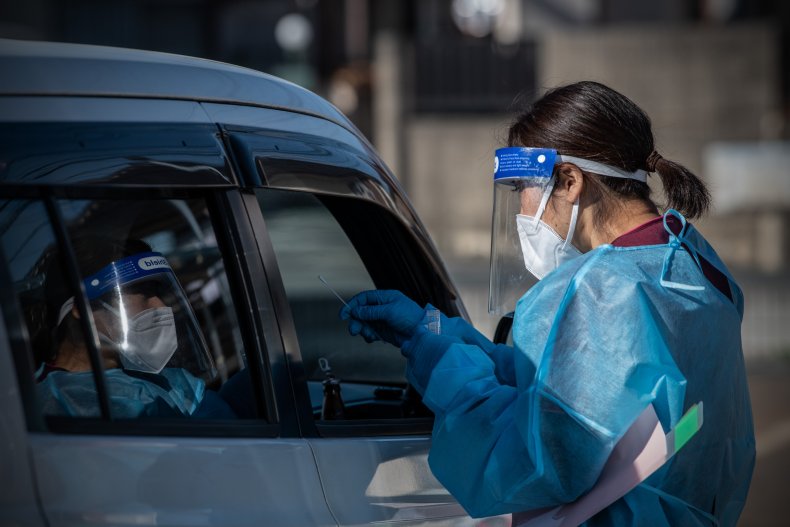[ad_1]
Amid the coronavirus pandemic, government officials in Beijing urged residents not to leave the city, Japan has banned all new entries of foreign nationals through January, and South Korea recorded its largest case increase on Christmas Day.
Despite none of them ranking among the world’s top for either COVID-19 cases or deaths, China, Japan and South Korea are promoting strict lockdown measures ahead of 2021. Beijing public health officials told residents not to leave during the Lunar New Year holiday through February and implemented new restrictions following a handful of new coronavirus infections last week. And while the United States saw its smallest daily increase on December 25, South Korea recorded 1,241 new infections, its largest daily spike yet.
South Korea has seen more than 15,000 new cases being added in just the last 15 days, which is happening alongside its deadliest two-week period since the start of the pandemic. Meanwhile, Chinese officials canceled all large gatherings including sporting events through the February 12 New Year, while all theaters, museums and libraries are operating at 75 percent capacity.
The public health responses in both South Korea and Japan had been widely touted across the globe in the early months of the pandemic, but now many scientists worry that such trust is cracking heading into the new year. Officials in those two countries said tighter lockdown measures are necessary because transmissions are outpacing hospital expansion efforts.
“Our hospital system isn’t going to collapse, but the crush in COVID-19 patients has significantly hampered our response,” said Choi Won Suk, an infectious disease professor at the Korea University Ansan Hospital, told the Associated Press in an interview published Saturday.
“We have patients with all kinds of serious illnesses at our ICUs and they can’t share any space with COVID-19 patients, so it’s hard,” Choi said. “It’s the same medical staff that has been fighting the virus for all these months. There’s an accumulation of fatigue.”
In Japan, final arrangements are being made to ban the entry of all non-Japanese nationals through January 31. Currently, only Japanese citizens and foreign nationals with resident status are allowed to enter the country—all of whom must quarantine for 14 days after arriving. As Reuters reported Saturday, Japan confirmed a record 3,823 new infections on Friday, its highest daily increase for a third straight day.
Japan has so far avoided a coronavirus outbreak on a level at all comparable to Europe or the U.S., recording only 215,000 known infections and about 3,200 deaths. The U.S. by comparison, has about 330,000 deaths tied to the virus and more than 18 million confirmed cases, according to Johns Hopkins University.
Despite the new restrictions and public health concerns in the region, the U.S., India, Brazil and Russia remain the countries with the most infections worldwide. But officials in Japan and the United Kingdom have both recorded their first cases of a new COVID-19 variant, prompting concerns that vaccinations and other treatments may soon be rendered ineffective.
British Health Secretary Matt Hancock said on December 14 that his country’s spike in COVID-19 cases may be linked to a strain of the virus, of which 1,000 cases of the variant had been identified.

CARL COURT / Staff/Getty Images
[ad_2]
Source link